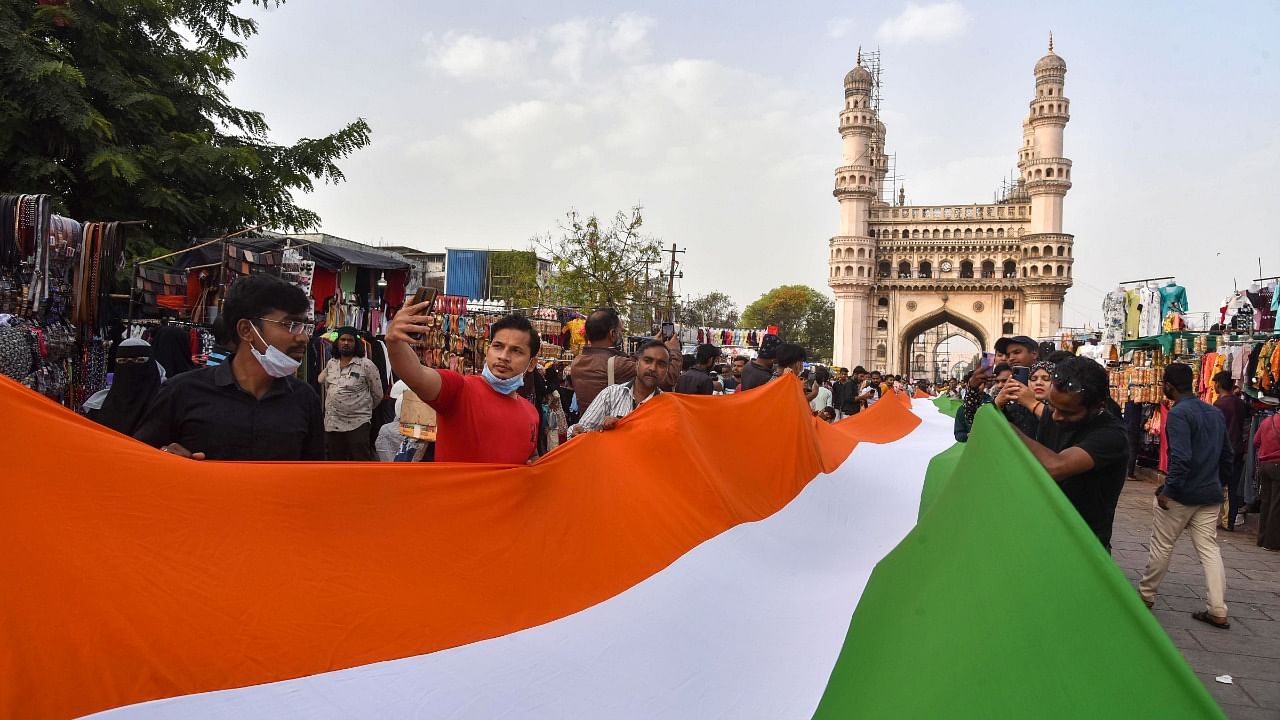
In 2022, we commemorate important events that led to the creation of modern India, and also events that threatened its very foundations: 100 years since the Non-Cooperation Movement, 90 years since the Poona Pact, 80 years since the launch of the Quit India Movement, 75 years of Independence, the 70th anniversary of India’s first general election, and by extension, India’s first Parliament, and more. To commemorate these events, it is worth examining the limitations and flaws in our democracy. India must move power away from its centralised executive and devolve fiscal and political powers to states, local governments, and various independent institutions, in order to live up to the legacy of these events and struggles.
Throughout the freedom struggle, the Indian National Congress (INC), which led it, argued that independent India should have a strong central government to quell secessionist tendencies in the fragmented British Raj. At Independence, Partition, religious and linguistic polarisation and the integration of the princely states underscored the need for provisions to allow the Union to take on emergency powers.
Also Read | The danger of democratic backsliding
However, the perils of a centralised State became clear during Indira Gandhi’s reign. She imposed President’s Rule 50 times during her reign, constrained judicial independence, and finally assumed dictatorial powers by imposing Emergency in 1975. After the Emergency was lifted, aspects of the Indian Constitution that allowed for centralisation were curtailed. For example, the threshold for declaring an Emergency was raised by the 43rd and 44th amendments to the Constitution (1978), while the 73rd and 74th Constitutional Amendments (1992-93) formally recognised local government bodies (LGBs) as a third-tier of government.
The coalition era (1989-2014) resulted in natural constraints on the Union government in imposing its rule unilaterally. In turn, conventions and practices emerged to protect states’ rights; nonetheless, centralising provisions were not removed, such as the Governor’s office, the influence of central agencies, and the abuse of the Concurrent List. In order to strengthen India’s democracy, these vestiges of the Raj must be reformed.
First, the Union should empower states and LGBs to take on more responsibilities to govern through further political and fiscal decentralisation. Evidence shows that successes in managing Covid-19 outbreaks were a result of decentralised governance, as seen in Kerala and in Mumbai. Globally, local governments such as in Tokyo, Manchester and New York City have shown their mettle in responding to crises while relying on higher levels of government for coordination and funding, and in some cases, disregarding central directives in favour of more effective measures. Public health measures must be discussed extensively with stakeholders, from LGBs to Parliament. For example, the UK Parliament voted on the imposition of Covid-19 restrictions in England but could not legislate on public health measures in Scotland, Wales and Northern Ireland.
On the other hand, when India first entered lockdown in March 2020, announced with a four-hour notice, the Union government justified it under the Disaster Management Act (2006) and Epidemic Diseases Act (1897), without consulting the states, ministries, or Parliament, even though health is a state subject. These laws provide, in effect, for centralised authority over the country without using emergency powers.
Fiscal decentralisation must be accelerated to empower LGBs and states to be more effective in governing. The deployment of GST revenues to states has been repeatedly delayed, even as states have increased spending to support citizens during the pandemic, despite Union control. The asymmetry between the Union’s powers and governance expectations at a local level undermines federalism and, in turn, harms development outcomes.
Second, colonial vestiges of the State, such as the office of Governor, must be reformed or even eliminated, to protect states’ rights. The office of the Governor was retained after Independence to allow competent individuals to provide guidance to fledgling governments and respond to insurgencies. However, the office has become a useful outpost for party loyalists, who frequently target Opposition governments. Over time, Governors have abused pocket vetoes to stall the implementation of legislation and have aired their grievances against elected governments that they are meant to support. Reducing the discretionary powers of the Governor, while strengthening qualifications to become one, and imposing a fixed timeline under which s/he can review legislation, are important steps to curb the excesses of this office.
Third, Parliament’s role in drafting and debating legislation must be strengthened. A combination of the US and UK’s approaches may help. For starters, legislation could be created in Parliament itself, rather than having the government introduce bills and then having the discretion whether or not to send them to committees for scrutiny, which allows the Executive to determine the legislative agenda and schedule.
Rather, these committees should be the first place for legislation to be conceptualised and evaluated, before going to Parliament. To strengthen trust between the government and Opposition, leading posts in Parliament could be given to Opposition members, such as the role of the Lok Sabha Speaker and Deputy Speaker, and Deputy Chairperson of the Rajya Sabha. Parliament should also be in session more often, with gaps of no longer than two months at a stretch. Ordinances should only be in effect for a short time as a response to emergencies, and not be used as an alternative to legislation by Parliament.
Indian independence was achieved by a commitment to the ideals of democracy and secularism, while the modern Indian State was created to respond to a range of crises, from communalism and poverty to secessionist tendencies and movements. The State’s ability and tendency to centralise power is undermining the country’s democracy and, in turn, undermining the very ideals it was built on. If India is to celebrate the enduring legacy of the freedom struggle and its democratic ideals in 2022, it must diffuse power across the government, laterally and to lower levels of government.
(The writer studied History and Anthropology at Stanford University)
Check out latest DH videos here